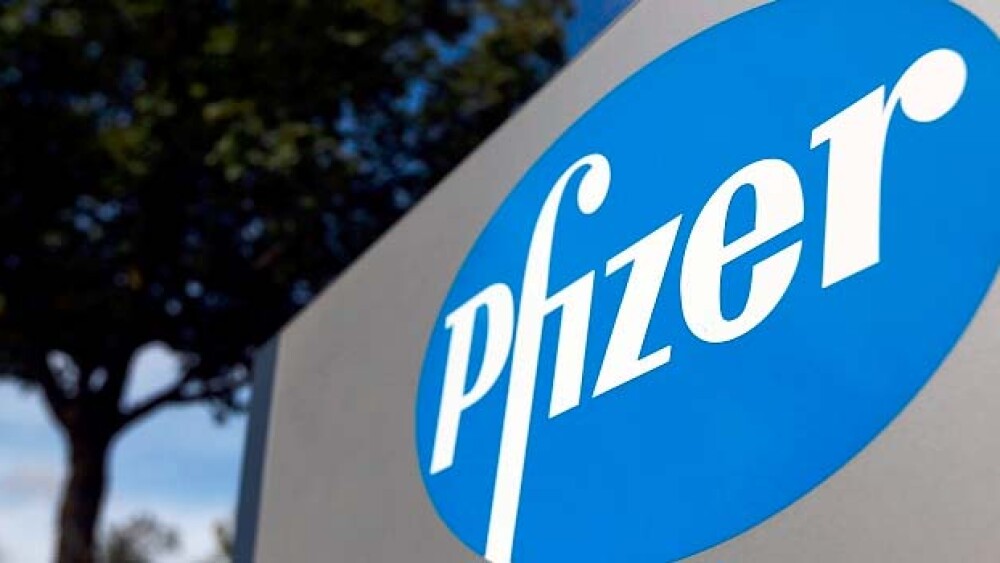Although Pfizer’s second-quarter financials exceeded expectations, with its adjusted earnings per share coming in at $0.81 compared to a forecast of $0.74, in its reporting there were a few changes to its pipeline.
Although Pfizer’s second-quarter financials exceeded expectations, with its adjusted earnings per share coming in at $0.81 compared to a forecast of $0.74, in its reporting, there were a few changes to its pipeline.
In particular, Pfizer reported that it was dropping drugs from its Type 1 diabetes and cancer early-phase pipeline. PF-06342674 is an anti-IL7R antibody, while PF-06747775 (mavelertinib) is a mutant-selective EGFR tyrosine kinase inhibitor. PF-06342674 apparently has been in the pipeline for several years without many signs of activity, but mavelertinib seemed to be going ahead recently when the company halted enrolling patients in its Phase I/II non-small cell lung cancer (NSCLC) clinical trial, even though it hadn’t met its target enrollment by about 100 patients. That clinical trial is apparently is continuing, but only with the current 65 patients already recruited.
FierceBiotech notes, “In October, Pfizer revised the Phase I/II trial to assess the use of mavelertinib in combination with its CDK4-CDK6 inhibitor Ibrance or PD-L1 checkpoint inhibitor Bavencio. Pfizer planned to administer the combinations to patients after testing mavelertinib as a single agent, both in previously treated and treatment-naïve patients. However, nine months after making the changes, Pfizer stopped enrolling patients in the trial.”
PF-06342674 is a bit different. The company ended a Phase Ib clinical trial of the antibody in 2015 in multiple sclerosis (MS) after enrolling four of 60 patients. At that time, it said the shuttering of the trial was “a corporate decision” that had nothing to do with safety or efficacy. But a Phase Ib trial of the drug in Type 1 diabetes continued and was completed in September 2016. FierceBiotech noted, “Since then, publicly available evidence of the advancement of PF-06342674 has dried up but the drug has remained listed in Pfizer’s Phase I pipeline. That changed this week when Pfizer dropped the drug in one of its periodic pipeline culls.”
In a statement, Ian Read, Pfizer chairman and chief executive officer, said, “Regarding our investment in innovation, we continue to advance our pipeline, which we believe currently has the largest and most promising array of late-stage prospect it has had in decades. We are looking ahead to several potential near-term opportunities in core therapeutic areas, and continue to see the potential for approximately 25 to 30 approvals through 2022, of which up to 15 have the potential to be blockbusters. We continue to believe our pipeline positions us to deliver life-changing medicines to patients while enhancing shareholder value.”
Those include Bavencio (avelumab) and talzoparib. In July, the first patient was enrolled in the Phase III JAVELIN Ovarian PARP trial to study Bavencio in combination with talazoparib in patients with previously untreated advanced ovarian cancer. In June, the company announced overall survival (OS) data from its Phase III PALOMA-3 trial, which evaluated Ibrance (palbociclib) in combination with fulvestrant compared to placebo plus fulvestrant in women with hormone receptor-positive (HR+), human epidermal growth factor receptor 2-negative (HER2-) metastatic breast cancer whose disease has progressed after prior endocrine therapy. And in May, the company announced positive top-line data from its Phase III trial of Lyrica (pregabalin) as adjunctive therapy for partial onset seizures in pediatric epilepsy patients.





